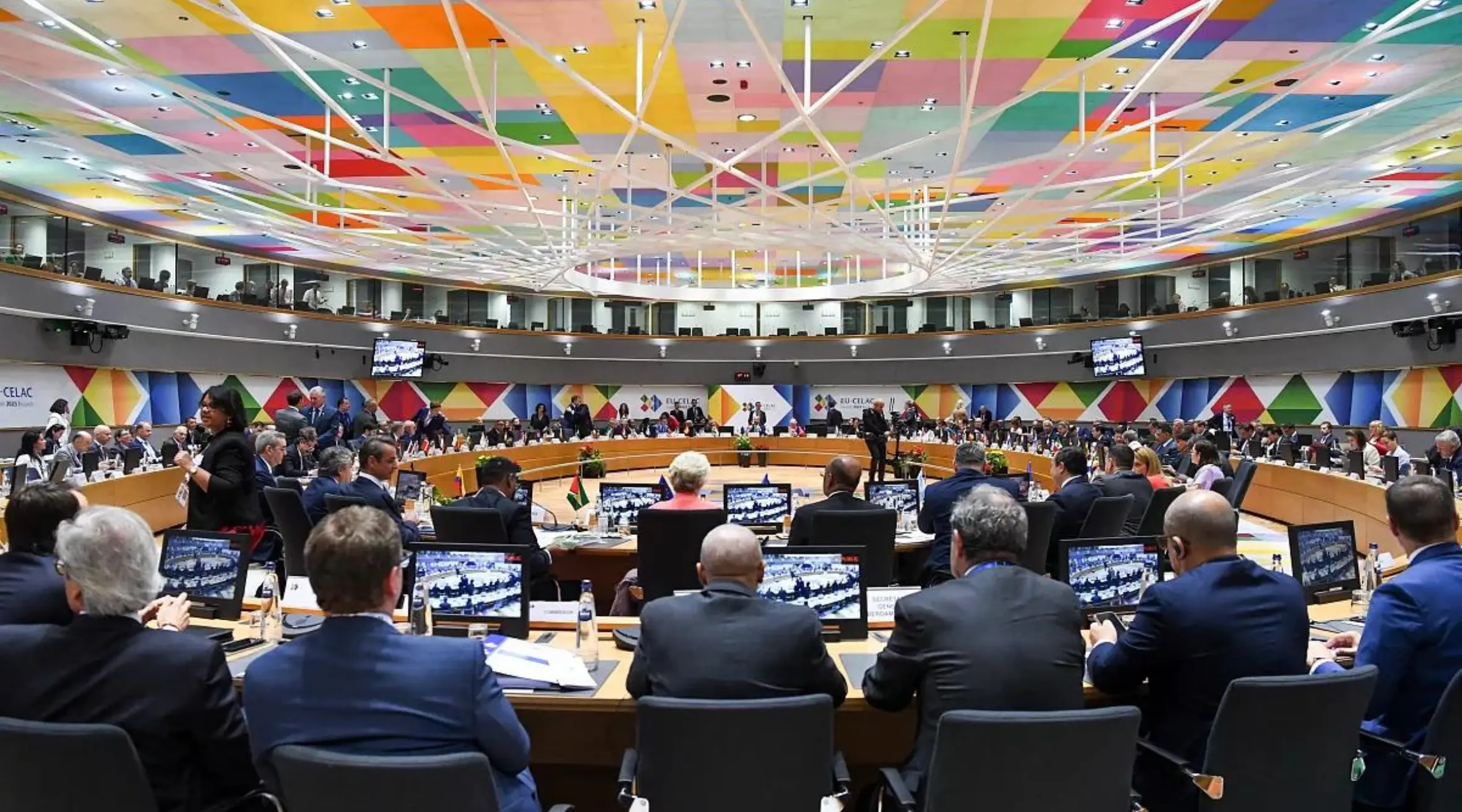Brussels (Transatlantic Today)— The leaders of Europe’s most radical right-wing parties gathered in Brussels in Brussels on Wednesday to unite the EU’s fragmented right wing following significant gains in the European elections. The discussions focused on potentially restructuring the European Parliament’s right-wing factions.
Major Players at the Table
According to Euronews, France’s Marine Le Pen, whose National Rally (RN) party now has the biggest delegation in the European Parliament after winning 30 seats in last week’s election, met with the leader of Italy’s far-right League party ahead of a meeting of Identity and Democracy (ID) group leaders.
Pursuit of a Unified Right
The League released a statement revealing that Salvini and Le Pen discussed the possibility of uniting Europe’s “center right,” despite their radical stances. Ventura emphasized the Identity and Democracy (ID) group’s ongoing efforts to expand and form a robust right-wing bloc focused on combating corruption, illegal immigration, and strengthening border control.
Potential for Major Reconfiguration
The European Parliament’s far-right factions are currently split into two camps, the ID group and the European Conservatives and Reformists (ECR). A merger of these groups, which include Giorgia Meloni’s Brothers of Italy and Spain’s Vox, could potentially elevate them to the third or even second largest political force in the Parliament.
Strategic Alliances and Challenges
Le Pen has sought support from Italian Prime Minister Giorgia Meloni to unite the ID group with Meloni’s ECR, despite the risks it poses to Meloni’s relationship with European Commission President Ursula von der Leyen. French President Emmanuel Macron’s call for snap legislative elections has added urgency to Le Pen’s efforts, as she aims to secure control of the National Assembly and position Jordan Bardella as France’s prime minister.
Orbán’s Potential Role
Hungarian Prime Minister Viktor Orbán’s Fidesz party, currently unaffiliated within the European Parliament, could contribute 11 seats to the potential far-right supergroup.
Divisive Issues: Ukraine and Russia
However, unifying these radical factions is fraught with challenges, particularly regarding the conflict in Ukraine. Some ID group members, like Austria’s Freedom Party (FPÖ), are pro-Russian and oppose EU support for Kyiv. Additionally, Germany’s AfD was recently expelled from the ID group over alleged Russian influence scandals.
Shifting Stances
In efforts to mitigate divisive issues, some ID group leaders have softened their positions on Ukraine and the EU. Le Pen and Wilders have distanced themselves from anti-EU rhetoric, and Le Pen’s RN has moved away from radical right-wing counterparts like Éric Zemmour’s Reconquête, seeking instead to ally with center-right partners.
Warnings from the Center and Left
Centrist and left-leaning groups have cautioned traditional center-right parties against aligning with radical factions, warning that such partnerships could destabilize Europe’s geopolitical landscape and impact the conflict in Ukraine.
These ongoing discussions in Brussels could significantly alter the landscape of the European Parliament, reflecting the evolving dynamics within Europe’s far-right movements.


























